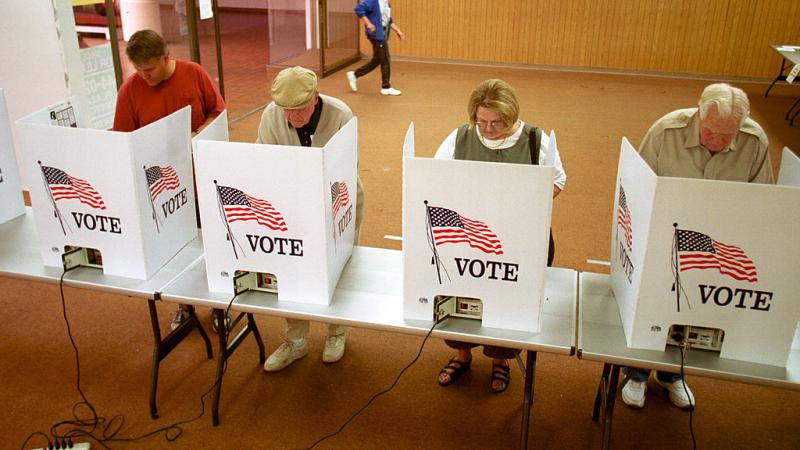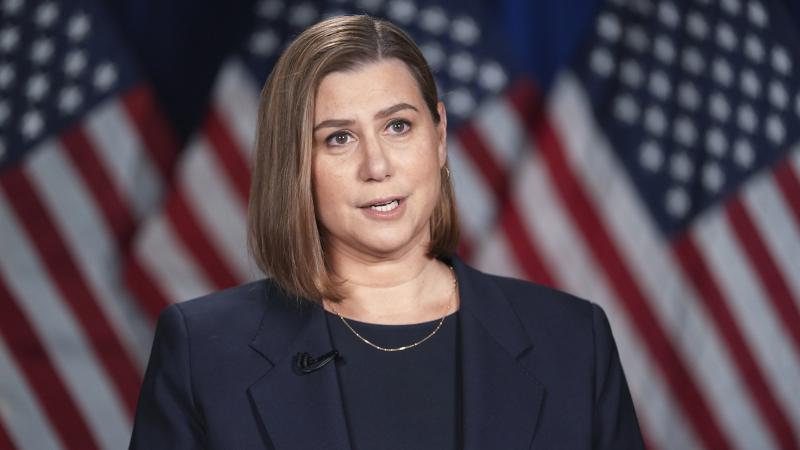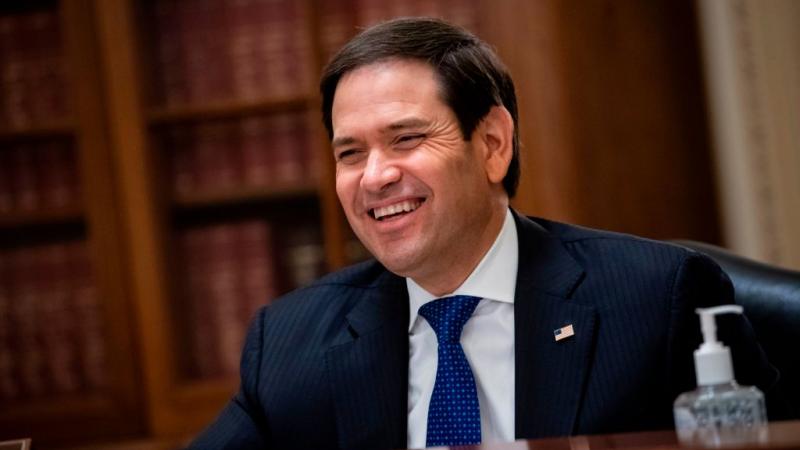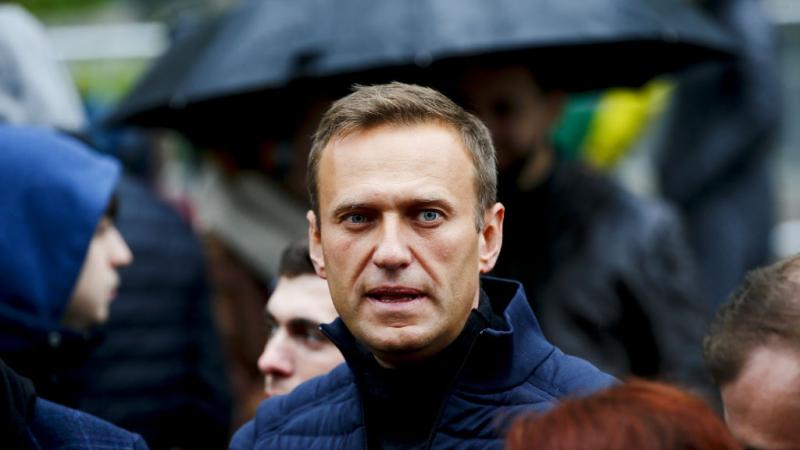Censorship files show Just the News flagged in government-tied election misinformation system
Election Integrity Partnership, set up with DHS help, falsely credited the idea to monitor and remove social media content to interns, House Judiciary investigation finds.
Some government interns make coffee, pick up mail and answer phone calls from irate constituents. Others scour social media for narratives their bosses would prefer not go viral.
This week two congressional committees said they had obtained voluminous new evidence of "censorship laundering" by the Department of Homeland Security through the Election Integrity Partnership, a private consortium that DHS's Cybersecurity and Infrastructure Security Agency helped set up ahead of the 2020 election.
"Not only were there a number of university students involved with the EIP, at least four of the students were employed by CISA" and funded by the Stanford Internet Observatory, the EIP's co-lead, according to a 104-page interim staff report by the House Judiciary Committee and its Weaponization of the Federal Government Subcommittee.
The students "used their government email accounts to communicate with CISA officials" and what EIP called external stakeholders, and CISA said one was designated responsible for "taking point on a lot of the EIP <> CISA interface," the report states.
Yet the feds falsely credited the SIO interns as the inspiration for the consortium, "seemingly intended to distance CISA and senior SIO leadership from the EIP’s creation," judging by interviews with and correspondence from EIP's four founders, according to the report.
SIO has said the consortium was created to circumvent legal landmines that could stop the feds from directly monitoring and reporting purported mis-, dis- and mal-information (MDM) to social media platforms for removal, labeling and "soft-blocking," with a 35% success rate in 2020.
Government and private participants used Jira ticketing software to report purported MDM on elections as well as COVID-19 and Hunter Biden's laptop, facilitated by EIP and its associated Virality Project.
The Judiciary report documents the system's overwhelming political tilt against conservative speakers, from former President Trump to the satire website the Babylon Bee, and involvement of the State Department-hosted interagency Global Engagement Center (GEC), known for its anti-populism efforts abroad.
Jordan provided several examples of "true information, jokes, and opinions" by politicians, lawyers, news organizations and influencers – even a Texas Public Policy Foundation post about the "serious shortcomings" of mail-in voting – that were targeted for action in EIP reports.
Just the News reporting over a year ago, cited in the new PBS "Frontline" documentary on "Elon Musk's Twitter Takeover," kicked off a frenzy of media and congressional interest in what turned out to be a sprawling relationship among several federal agencies, misinformation police, tech platforms and interest groups including the NAACP and the Democratic National Committee.
JTN reporting also shows up in a massive and unwieldy spreadsheet of tickets that Stanford turned over only after Judiciary "threatened contempt" for ignoring a subpoena, Chairman Jim Jordan, R-Ohio, wrote in a thread Monday night on Musk's X, formerly Twitter, summarizing its findings.
Stanford's counsel had invoked students to hide the content of the tickets, claiming they "concern[ed] only a research project conducted by Stanford students," the report says.
Yet in a June transcribed interview with the committee, SIO Director Alex Stamos personally took credit for EIP's conception and said he "probably" consulted with then-CISA Director Chris Krebs in summer 2020 when EIP was being developed. Krebs and Stamos founded a consultancy together after the former left government.
Emails from July 2020 show that the Atlantic Council, one of the four private EIP founders, said it was set up "at the request of DHS/CISA," while Stamos told his co-lead Kate Starbird at the University of Washington Center for an Informed Public that SIO was "working on some election monitoring ideas with CISA."
An internal Atlantic Council email Sept. 30, 2020, also revealed that students did the grunt work – "the first round of analysis" – but were "not … surfacing EIP leads. Krebs CISA is texting Stamos with some regularity" while "Starbird's UW team" is using "advanced soc[ial] media listening methods."
The council's role is "attaching more contextual information," writing blog posts and devising recommendations to tech platforms, the email said.
The word "REDACTED" appears 6,261 times in the nine-tab widescreen spreadsheet, in fields such as "reporter," "assignee" and 36 columns labeled "comment," as well as names and email usernames. Even when fields describing the ticket are not redacted, they can be hard to identify because each ticket requires several horizontal scrolls to read in full, without headings visible.
Two tickets cite social media posts by JTN and its founder John Solomon, sharing JTN reporting, both labeled "delegitimization" and "review complete," with the ticket reporter and creator redacted.
One ticket says: "Article quotes Trump campaign press secretary making misleading/false statements about prepaid postage." It cites a FactCheck.org report. It's not clear whether any platform took further action because several fields are redacted.
The other reads: "Nevada whistleblower says that workers were instructed to process illegitimate ballots." It was flagged via "internal detection" and a note says "Twitter has received and is reviewing," without providing an unredacted outcome.
Hours before Judiciary dropped its spreadsheet and staff report Monday, the House Homeland Security Committee and its Investigations Subcommittee said they received "numerous spreadsheets" from Stanford that indicate "government employees, at times using their government email," actively participated in efforts to flag and report alleged MDM.
Committee Chairman Mark Green, R-Tenn., and Oversight Subcommittee Chairman Dan Bishop, R-N.C., asked SIO in June to hand over all tickets in the system, following their "laundering" hearing in May.
They didn't post the spreadsheets but shared them with RealClearInvestigations reporter Ben Weingarten, who had testified at the hearing. He wrote a high-level report and a granular report with "notable instances" of tickets.
They include CISA's direct targeting of Trump for saying that "most" states allow early voters to change their votes.
Its Elections Infrastructure Information Sharing & Analysis Center quickly reported Trump's Oct. 27, 2020, tweet under the category "procedural interference," but Twitter rejected the claim as not a policy violation.
CISA's MDM Team head Brian Scully, who gave a sworn deposition that CISA's role was solely "switchboarding" between election officials and platforms, also reported the tweet himself and got a response from Twitter, Weingarten said, citing "CISA-produced documentation."
Between Feb. 20 and 24 this year, CISA rebranded the MDM Team as "Foreign Influence Operations and Disinformation."
A ticket filed by GEC about an Instagram video titled "POLL WORKER CAUGHT CHANGING BALLOTS," acknowledges the legal gray area of the operation.
"I came across this post while looking for potential foreign narratives on Instagram," the staffer wrote. "I believe the original video was taken in Montgomery County, MD," but was "apparently circulating without a state label in key swing swing states."
But because of the Privacy Act, "I will leave further investigation to the EIP and Instagram teams," the staffer wrote.
CISA provided Just the News the same canned statement from the previous two queries.
"CISA does not and has never censored speech or facilitated censorship," Executive Director Brandon Wales said. "Every day, the men and women of CISA execute the agency’s mission of reducing risk to U.S. critical infrastructure in a way that protects Americans’ freedom of speech, civil rights, civil liberties, and privacy.
"In response to concerns from election officials of all parties regarding foreign influence operations and disinformation that may impact the security of election infrastructure, CISA mitigates the risk of disinformation by sharing information on election literacy and election security with the public and by amplifying the trusted voices of election officials across the nation," he wrote.
The Facts Inside Our Reporter's Notebook
Links
- 104-page interim staff report
- circumvent legal landmines that could stop the feds
- Jira ticketing software
- system's overwhelming political tilt against conservative speakers
- Global Engagement Center (GEC), known for its anti-populism efforts
- Texas Public Policy Foundation post
- Just the News reporting
- PBS "Frontline" documentary
- massive and unwieldy spreadsheet of tickets
- Chair Jim Jordan, R-Ohio, wrote in a thread
- Krebs and Stamos founded a consultancy
- House Homeland Security Committee and its Investigations Subcommittee
- asked SIO in June
- "laundering" hearing in May
- high-level report
- granular report with "notable instances"
- "most" states allow early voters to change their votes
- CISA's role was solely "switchboarding
- CISA rebranded the MDM Team
- "Foreign Influence Operations and Disinformation."














